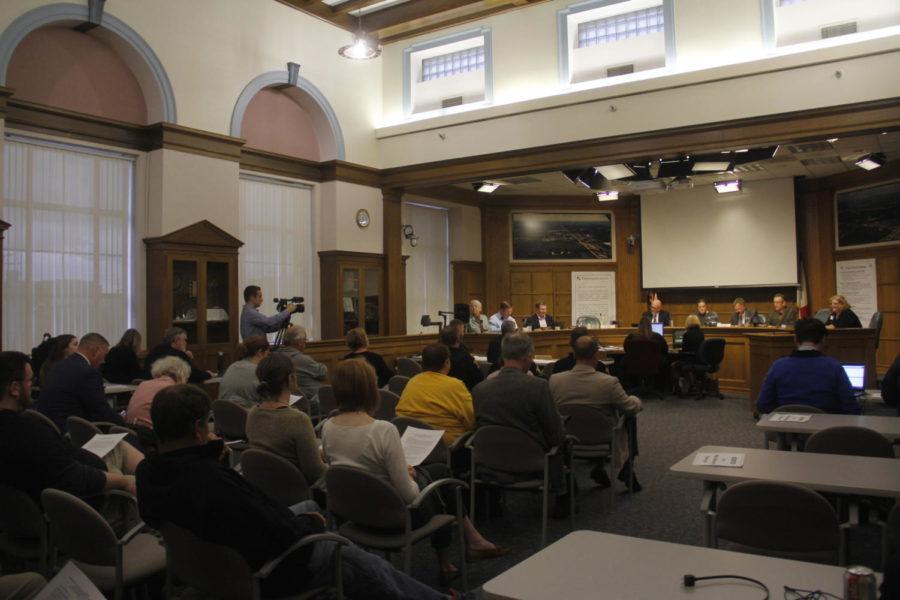Campus and Community Commission to focus on inclusivity
January 15, 2019
The Ames City Council commissioned a group of specialized personnel to improve the discussions of common interest between the council and different Ames communities in 2017, and their current task is to make Ames a more inclusive community.
The Campus and Community Commission is made up of representatives from different community organizations, business representatives, the Iowa State Student Senate and the Iowa State Administration.
“Having representatives from so many different areas of the community really provides a good pool of insight into the 70-some thousand people that call Ames home,” said Pete Englin, university administration appointee.
Englin began working at Iowa State in 1989 after getting his doctorate in education and hospitality management. He initially worked for the Department of Residence before serving as dean of students for six years. He now works as the assistant vice president for the Department of Residence.
“Basically, we do investigations and fact-finding on behalf of the city council,” Englin said. “We utilize the resources that we have with all our unique positions… and really try to find out what the options are for the community.”
One such project the Campus and Community Commission was first given to gather community input on a plaza-type gathering space in the Campustown area. Students and other community members could meet or engage in commerce around Campustown in a way more friendly to foot-traffic.
“Conversations about that kind of thing had been going on for years,” said Karin Chitty, a Campus and Community Commission member and executive director of the Campustown Action Committee. “[When we were brought in], we explored what people would want in a project like that. We met with the Ames Fire Department, Ames [Police], the student government and we hosted multiple public meetings and focus groups to see what the community really wanted.”
The city council last spoke about the Campustown Plaza on Dec. 11, 2018, and decided more input was needed from the Campus and Community Commission and Campustown business owners before making any decisions.
The city council most recently tasked the Campus and Community Commission to gather feedback about potential inclusivity programs across different city communities. After the commission reported back to the council at the Dec. 8 meeting, the commission and the city council decided the goals had been too vague, and the city council will meet again in the future to give the Campus and Community Commission more direction.
The Campus and Community Commission found that there was already many pro-inclusivity actions and events being planned across different Ames communities. Chitty said that Ames is doing a good job in this arena, but there’s always more work to be done.
“We had a fair amount of conversations with Iowa State and other groups, and we discovered that another inclusivity event wasn’t the answer,” Chitty said. “Lots of churches and community groups are doing these kinds of things, and we don’t want to just double-up on what people are already doing.”
The Campus and Community Commission recommended an idea to unite all the different efforts already happening within the Ames community at the councils Dec. 11 meeting. They suggested giving these groups a core theme to share with one another to make the different inclusivity efforts more unified.
“There’s always more we can do,” Chitty said. “Maybe the best thing for the city to do is offer supplemental support to all these different efforts.”
The city council will offer more direction to the Campus and Community Commission in February.
“It is expected the City Council will provide the Campus and Community Commission with some direction after the Council holds its annual goal-setting retreat on Feb. 2, Ames Public Relations Officer Susan Gwiasda said in an email.
The annual goal-setting retreat is time set aside near the beginning of each year, and dedicates an entire day for the council to discuss their relationship with their constituents, brush up on meeting policy and engage each other about issues the city faces. The minutes of these retreats are available through public city documents.







